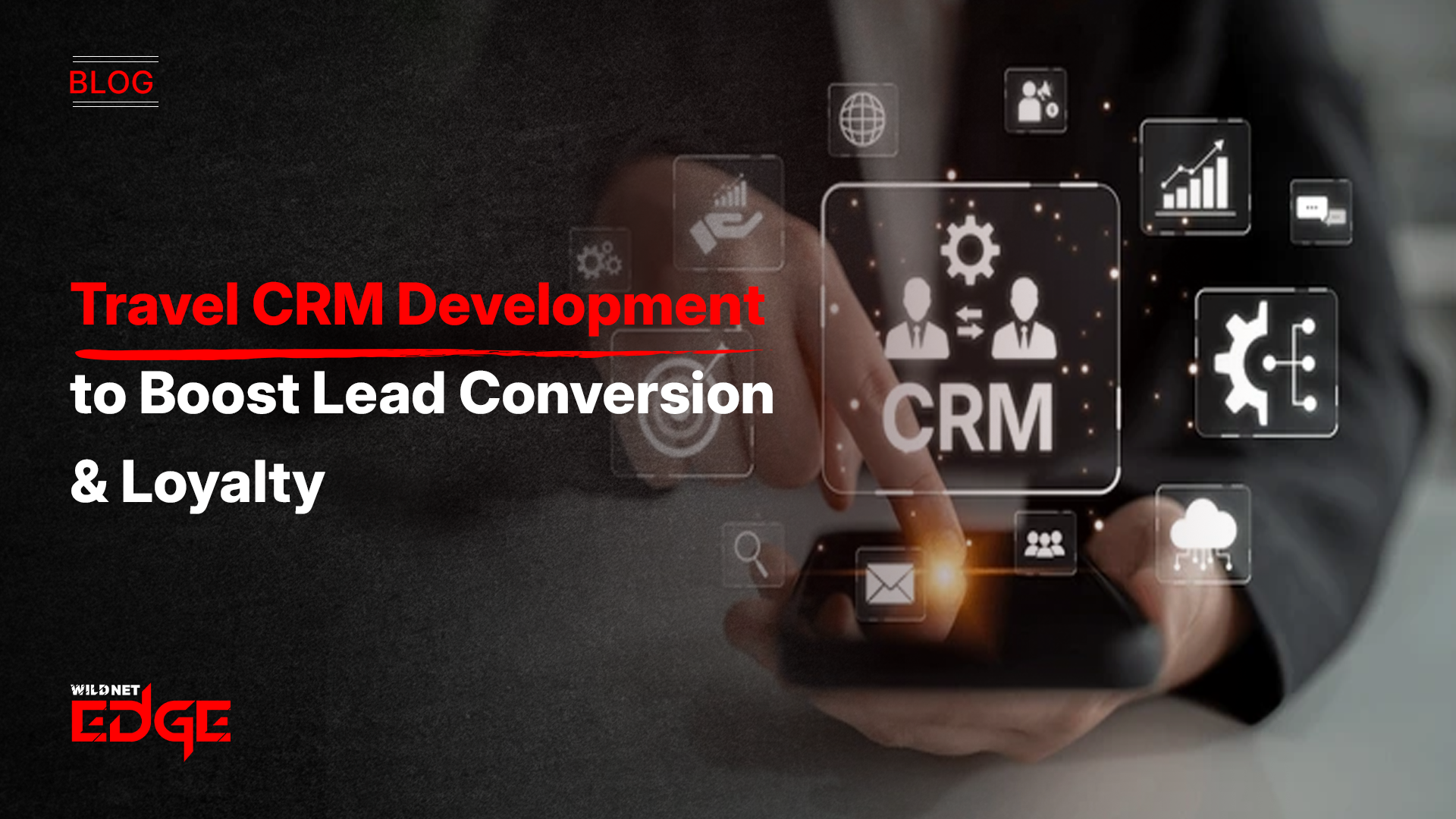Choosing the right ecommerce platform can be a daunting task for any business owner. With numerous options available, each boasting unique features and functionalities, it becomes essential to find the one that aligns with your business needs and growth aspirations. Among the leading contenders in this arena, Shopify vs BigCommerce emerges as a critical comparison for entrepreneurs. Questions arise: Which platform offers better features? How do their pricing models stack up against each other? And most importantly, how scalable are these platforms as your business grows?
By evaluating these crucial aspects, online merchants can make an informed decision that not only supports their current business goals but also positions them for scalable growth. In the following sections, we will provide a comprehensive overview of both platforms, dissect their key features, pricing structures, user experiences, and more, to help you in making the best choice for your ecommerce venture.
Overview of Ecommerce Platforms
In the digital marketplace, having a reliable ecommerce platform is key to success. Shopify and BigCommerce are popular choices, each catering to different business needs. Let’s take a closer look at their key features.
Key Features of Shopify
Shopify is renowned for its simplicity and accessibility, making it an excellent choice for beginners as well as seasoned ecommerce professionals. Here are some standout features:
- User-Friendly Design: Shopify offers a sleek interface that’s easy to navigate, allowing users to manage their store without the need for extensive technical knowledge.
- Template Options: With over 70 professionally-designed templates, Shopify provides numerous customization opportunities to help your online store stand out.
- App Integrations: The Shopify App Store features thousands of apps, enabling users to add functionalities ranging from inventory management to advanced marketing tools easily.
The platform is designed to eliminate common ecommerce hurdles, making it ideal for those new to online selling.
Key Features of BigCommerce
BigCommerce enters the scene with a focus on scalability and robust features that cater to growing businesses. Here’s what makes it stand out:
- Advanced Customization: Unlike Shopify’s template-centric approach, BigCommerce allows deeper customization of online stores. Users can modify the underlying code to achieve highly personalized experiences that fit their brand.
- Built-In Features: BigCommerce comes with a slew of built-in features that often require third-party apps on other platforms, such as advanced SEO tools and multiple payment gateways.
- Scalability: It’s designed to accommodate larger businesses effortlessly. This platform is equipped to handle a high volume of products and transactions without performance dips.
Overall, BigCommerce appeals to merchants looking for a platform that can handle complexity with ease.
Shopify vs BigCommerce: Pricing Structures
Pricing is a crucial aspect that can significantly impact your decision between Shopify vs BigCommerce. Both platforms have distinct pricing structures that cater to various types of businesses.
Shopify Pricing Breakdown
Shopify offers multiple pricing tiers, providing flexibility depending on your business size and needs:
- Basic Plan: Starting at $39/month, it includes essential features and tools suitable for startups.
- Shopify Plan: For $105/month, you get more advanced reporting and features, accommodating growing businesses.
- Advanced Plan: At $399/month, this plan is designed for larger businesses with extensive product lines and sales volumes.
In terms of additional costs, Shopify charges transaction fees ranging from 2.9% + 30¢ per sale to 2.4% + 30¢, depending on the plan. These fees can add up, especially for high-volume merchants, so it’s essential to factor them into your budget.
BigCommerce Pricing Breakdown
BigCommerce pricing structures offer competitive plans with inclusive features, which can be a strong advantage:
- Standard Plan: Starting at $39/month, it offers necessary tools for small businesses.
- Plus Plan: For $105/month, additional features include customer segmentation and abandoned cart recovery.
- Pro Plan: At $399/month, this option caters to larger businesses with advanced reporting and API capabilities.
Unlike Shopify, BigCommerce doesn’t charge transaction fees, but merchants might find limitations based on annual sales. These thresholds can lead to automatically upgrading to higher plans, which is critical to keep in mind for growing businesses.
Ease of Use Compared
When evaluating Shopify vs BigCommerce, ease of use is one of the most critical factors. Each platform has its own approach to user experience and onboarding.
User Experience on Shopify
Shopify prides itself on providing a smooth setup experience. Users can typically get their stores up and running within a matter of hours due to its intuitive interface. Here’s what you can expect:
- Setup Process: Users can choose from various templates and add products easily using the guided interface.
- Customer Support: Shopify offers 24/7 customer support via live chat, email, and phone, ensuring you can find help whenever you need it.
- Resources: A wealth of tutorials and documentation is available to assist users at every stage of their ecommerce journey.
The overall user-friendly nature of Shopify makes it a popular choice for merchants seeking a hassle-free experience.
User Experience on BigCommerce
BigCommerce offers a more complex user experience, which can lead to a steeper learning curve for new users:
- Onboarding Process: Setting up a store can be more challenging due to the platform’s advanced functionalities, requiring time to fully understand the system.
- User Interface: The interface is loaded with features, which can be overwhelming for beginners but provides a more comprehensive approach for those already familiar with ecommerce platforms.
- Support Options: BigCommerce provides 24/7 live support, a help center with exhaustive articles, and community forums where users can share insights and solutions.
While the learning curve may be higher, the depth of features can ultimately lead to better customization and control for the user.
Customization and Flexibility
In the world of ecommerce, customization can play a significant role in defining brand identity. Let’s look at how Shopify and BigCommerce handle customization and flexibility.
Shopify Customization Options
Shopify allows merchants to create a unique storefront by providing:
- Theme Customization: Users can modify themes easily using a drag-and-drop editor, allowing for personalized branding without extensive programming skills.
- Apps for Functionality: The rich selection of third-party apps enables entrepreneurs to add capabilities to their stores, from email marketing to advanced analytics.
- Limitations: Some deep customization may require knowledge of Liquid (Shopify’s templating language) or advanced coding, which might be a barrier for non-technical users.
Overall, Shopify provides a great balance between ease of use and adequate customization for most merchant needs.
BigCommerce Customization Options
BigCommerce takes customization to another level by offering:
- Complete Code Access: Developers can dive into the code and make granular changes, allowing for significant flexibility.
- Built-In Features: Many advanced functions, such as SEO optimizations and detailed product descriptions, are built directly into the platform rather than relying on apps.
- Dynamic Options: Merchants can enable features like bulk pricing, complex discounts, and advanced product variants without needing to install additional tools.
This flexibility makes BigCommerce a strong contender for businesses that require a tailored solution.
SEO and Marketing Capabilities
SEO plays a critical role in the success of online stores. Let’s explore how Shopify and BigCommerce support your SEO and marketing efforts.
SEO Features of Shopify
Shopify offers various features designed to enhance your store’s visibility:
- SEO-Friendly URLs: Users can customize URLs to enhance search engine ranking.
- Meta Tags and Descriptions: Merchants can easily edit meta titles and descriptions for improved site indexing.
- Built-In Blogging Tool: An integrated blogging platform helps enhance content marketing strategies and can drive organic traffic.
Shopify’s emphasis on simplicity ensures that users can optimize their stores without needing an extensive SEO background.
SEO Features of BigCommerce
BigCommerce is particularly advanced in its SEO provisions:
- Customizable URLs: Like Shopify, BigCommerce enables users to edit URLs easily.
- Structured Data Support: Built-in support for structured data helps search engines understand the content better, which can improve visibility in search results.
- Comprehensive Analytics: The platform provides in-depth analytics, allowing businesses to optimize both content and marketing strategies effectively.
Overall, BigCommerce may provide a slight edge for businesses focused heavily on SEO and online marketing, mainly due to its advanced built-in capabilities.
Payment Gateways and Transaction Fees
Payment processing is vital for any ecommerce platform. Let’s compare how Shopify and BigCommerce handle payment gateways and associated fees.
Payment Processing on Shopify
Shopify supports a wide range of payment gateways, showcasing its versatility:
- Shopify Payments: Users can use Shopify’s own payment processor, which allows for seamless integration but comes with inherent transaction fees if you choose to use third-party gateways.
- Gateways Available: Shopify supports over 100 payment gateways, including PayPal, Stripe, and Authorize.Net, ensuring most merchants can find a suitable option.
- Transaction Fees: If you opt not to use Shopify Payments, additional transaction fees of up to 2% apply depending on the plan, impacting profit margins.
Merchants should carefully assess their payment preferences and costs involved when using Shopify.
Payment Processing on BigCommerce
BigCommerce also supports a wide array of payment gateways:
- Wide Payment Options: The platform integrates with over 65 payment processors, including PayPal, Stripe, and Square, providing numerous choices for users.
- No Transaction Fees: BigCommerce doesn’t impose additional transaction fees, which can significantly enhance profit margins, especially for high-volume merchants.
- Easy Setup: The payment gateway setup is straightforward, ensuring businesses can begin processing orders in no time.
BigCommerce’s flexibility and lack of transaction fees can make it a favorable option, especially for businesses anticipating substantial sales.
Summary and Recommendations
As we dissected Shopify vs BigCommerce, it becomes evident that each platform caters to different business scenarios. Let’s summarize the Key takeaways.
Best for Small Businesses: Shopify
Shopify is an ideal choice for smaller operations. Here’s why:
- User-Friendly Interface: Its simplicity and ease of use are unmatched, making it perfect for those new to ecommerce.
- Cost-Effective: While there are some transaction fees, the overall cost tends to be lower for startups, helping budget-conscious merchants get started quickly.
If you are a small business focused on getting up and running with minimal fuss, Shopify may be your best option.
Best for Growing Businesses: BigCommerce
BigCommerce shines for larger, scaling businesses. Consider it if:
- Scalability is Key: If you anticipate significant growth and need a platform that can accommodate increasing product lines and high volume, BigCommerce is tailored for that.
- Advanced Features Matter: Its built-in advanced features allow greater customization without requiring extensive third-party applications.
For those looking to establish or expand their ecommerce business, BigCommerce presents compelling advantages.
Conclusion
In the end, the choice between Shopify and BigCommerce boils down to your specific business needs and your intensity of future growth. Shopify is the prudent choice for startups or smaller businesses, while BigCommerce provides the robust, scalable solutions ideal for larger operations anticipating significant growth. Whichever you choose, at Wildnet Edge, a trusted ecommerce development company, we remain committed to aiding you in this journey with expert insights and tailored advice to help you harness the full potential of ecommerce platforms. Consider exploring your options further and let Wildnet Edge guide you toward the most suitable ecommerce platform for your needs.
FAQs
Q1: What are the main differences between Shopify vs BigCommerce?
A1: Shopify is generally more user-friendly, while BigCommerce offers more robust built-in features that cater to larger and growing businesses.
Q2: Which ecommerce platform is better for small businesses?
A2: Shopify is typically more suited for small businesses due to its simplicity and ease of use, making it accessible for new entrepreneurs.
Q3: How do the pricing structures compare between Shopify and BigCommerce?
A3: Shopify has tiered pricing with transaction fees, while BigCommerce often provides more comprehensive features at a higher base price but without additional transaction fees.
Q4: Which platform supports more payment gateways, Shopify or BigCommerce?
A4: Both platforms support multiple gateways, but BigCommerce generally allows for more options without additional transaction fees.
Q5: Are there significant SEO advantages in Shopify vs BigCommerce?
A5: Both platforms have strong SEO features; however, BigCommerce has built-in functionalities that might provide better results for larger shops focused on optimizing their search presence.

Managing Director (MD) Nitin Agarwal is a veteran in custom software development. He is fascinated by how software can turn ideas into real-world solutions. With extensive experience designing scalable and efficient systems, he focuses on creating software that delivers tangible results. Nitin enjoys exploring emerging technologies, taking on challenging projects, and mentoring teams to bring ideas to life. He believes that good software is not just about code; it’s about understanding problems and creating value for users. For him, great software combines thoughtful design, clever engineering, and a clear understanding of the problems it’s meant to solve.
 sales@wildnetedge.com
sales@wildnetedge.com +1 (212) 901 8616
+1 (212) 901 8616 +1 (437) 225-7733
+1 (437) 225-7733
















 AI Development Services
AI Development Services Industry AI Solutions
Industry AI Solutions AI Consulting & Research
AI Consulting & Research Automation & Intelligence
Automation & Intelligence













